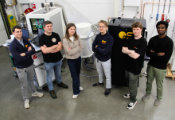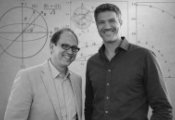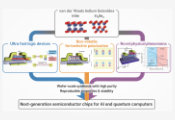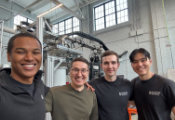Quantum Motion's Principal IC Engineer awarded 1851 Royal Commission Fellowship
September 23, 2024 -- Alberto Gómez Saiz, Principal IC Engineer at Quantum Motion has been awarded a prestigious Industrial Fellowship by the Royal Commission for the Exhibition of 1851. Alberto’s fellowship will enable research into the integration of quantum components into traditional microchip technology at Quantum Motion with PhD support from Imperial College London.
The Industrial Fellowship from the Royal Commision aims to bridge the gap between academia and industry promoting research with real-world impact. Fellows conduct research within their company and are supported by a university to dive into the research questions at the heart of the problem they want to solve. The Commission’s Industrial Fellowship funding of up to £125,000, covers salary contributions, university fees, and the costs of a fellow’s doctoral studies for up to three years of research. Throughout the program, Fellows are provided with support from industrial and academic supervisors.
Alberto Gómez Saiz, Principal IC Engineer at Quantum Motion said, “Being awarded this fellowship is an unique opportunity to explore how to leverage the quantum properties of electronic components in traditional integrated circuit design. The programme allows me to draw upon the strengths of Quantum Motion and Imperial College London in quantum computing and analogue integrated circuit design. I am excited about the research possibilities this fellowship will unlock for my career.”
John Morton, CTO and co-founder of Quantum Motion: “We are thrilled to support our staff in developing their skills through projects at the forefront of technological innovation. This fellowship gives Alberto the exciting opportunity to shape a fantastic PhD project, carried out at Quantum Motion in partnership with Imperial, that will drive real progress toward the goal of creating a scalable quantum computer.”
John Lavery, Secretary at the Royal Commission said, “This intersection of academia and industry fosters the development of innovative technologies with real-world impact that will further the UK as a world leader in science and engineering. This year’s cohort is developing solutions to global challenges in health, manufacturing, and sustainability while utilising transformative tools like artificial intelligence. The Commission is proud to invest in these exceptional early-career scientists and engineers that are shaping our future.”




































